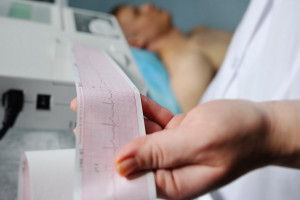Experts in Karpacz warn: Poland is increasingly dependent on drugs from China and India

- A report by the Warsaw School of Economics presented in Karpacz warns that Poland and the EU are becoming increasingly dependent on supplies of active substances from China and India, which creates a risk of drug shortages.
- Experts emphasize that global supply chains are susceptible to transport and geopolitical disruptions, and a downtime of several days could endanger patients
- The solution is to develop production in Poland and Europe, diversify sources and build strategic drug reserves.
- Poland is one of the least effective healthcare systems in the region, which, given the low expenditure and short life expectancy, further increases the risks.
On the last day of the Economic Forum in Karpacz, the SGH Healthcare Think Tank presented the report "Supply chains of medicines and active substances to Poland. Do they pose a threat to health security?" .
The publication presents the current picture of global and domestic drug supply chains, with particular emphasis on drugs for cardiovascular diseases - a group of fundamental importance for public health, as circulatory system diseases are the main cause (46%) of deaths in Poles.
Analyses show that Poland, like the entire European Union, is becoming increasingly dependent on the supply of active pharmaceutical ingredients (APIs) from Asia, mainly China and India .
"The majority of the world's API production currently takes place there, with many active ingredients having only a few producers worldwide, and in some cases, only one. Combined with long transport times from Asia and the recently increasing risk of geopolitical disruptions, this poses a real threat to the continuity of patient treatment," the report's authors emphasized.
"The current structure of global drug and active ingredient supply chains, dominated by Asian producers, makes the Polish healthcare system particularly vulnerable to transport disruptions and geopolitical tensions. A supply disruption of just a few days is enough to significantly increase the risk of shortages of critical medications for patients," emphasized Dr. Łukasz Marzantowicz, co-author of the report and a logistics expert.
Researchers identified actions to strengthen the resilience of supply chains. These include diversifying sources of active ingredients through the development of production in Poland and Europe, as well as building strategic drug reserves. SGH experts emphasized that current decisions will impact the health security of Polish patients in the coming years.
In Karpacz, scientists from the Warsaw School of Economics also presented a cross-sectional report analyzing the socio-economic situation in the countries of Central and Eastern Europe, also taking into account the health care systems of individual countries.
The report shows that Poland is among the countries with the lowest efficiency of the healthcare system in our region of Europe , which is reflected in low health expenditure (5.3% of GDP), low life expectancy (65.5 years) and high mortality (395.2/100,000).
Experts from the panel on health care during the crisis also discussed drug safety in Karpacz.
Piotr Pietrucha from the pharmaceutical company Sandoz Polska emphasized that for health security, it is important that the largest possible production of drugs takes place domestically and in Europe, not just outside of it. He also noted that there is currently no system that would collect information on the quantity and type of drug stocks a given hospital has.
- We need a central system, such as the one used in pharmacies - he noted.
Krzysztof Kępiński from the pharmaceutical company GSK , pointed out that international cooperation is also crucial for drug safety.
"There is no country in Europe that can ensure the health security of its citizens on its own. Perhaps the world's three largest superpowers can, but in Europe we are forced to cooperate . Uninterrupted access to supply chains is the foundation of our response to the crisis," he emphasized.
He pointed out that there is a logistics and distribution center for GSK drugs and vaccines near Poznań, from which the preparations are sent to 13 European Union countries, including Germany, Denmark and Finland.
"That's over 520,000 deliveries per year, over 60 million medicines, and over 13 million vaccine doses. It's crucial that all these supply chains are maintained regardless of the crisis," he emphasized.
Copyrighted material - reprint rules are specified in the regulations .
rynekzdrowia

![Safe in times of crisis. How to ensure the health of citizens and soldiers when the world is in turmoil? [REPORT]](https://pliki2.rynekzdrowia.pl/i/22/98/58/229858_r0_300.jpg)






